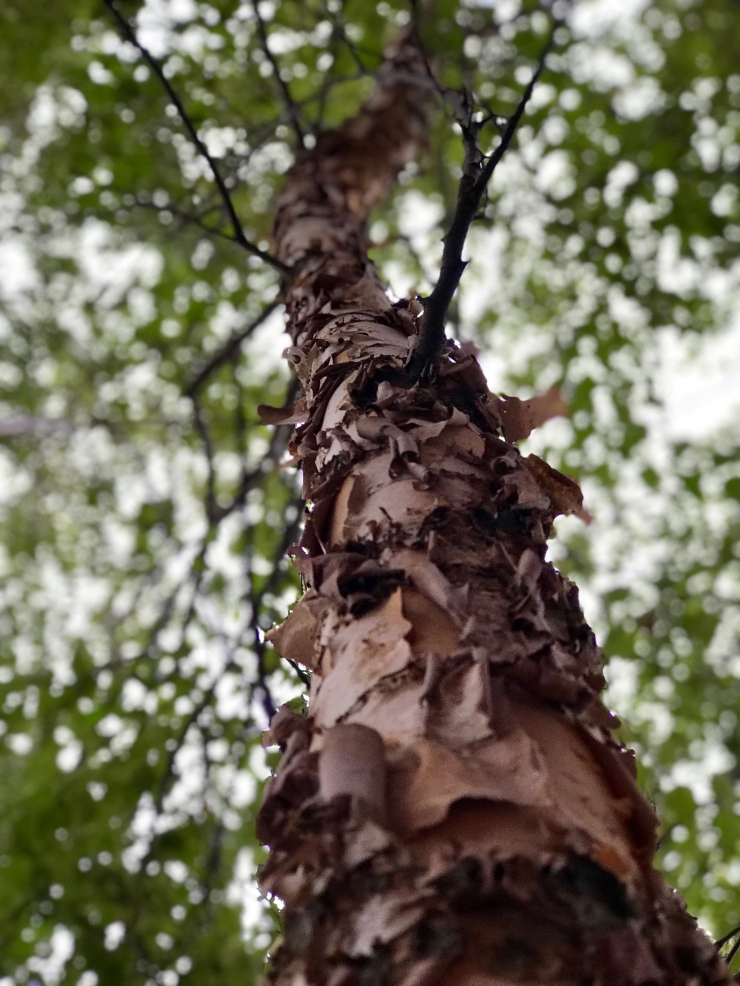
As published in The Providence Sunday Journal, October 20, 2019.
My rake tugs at wet leaves beneath the birch tree in my backyard, making me think of the worn volume of Robert Frost poems that my friend Jim gave me after his father died.
“It was in Dad’s bookcase,” he said, handing me the slender paperback. “I want you to have it.”
My friend’s gesture didn’t surprise me; he was bighearted and knew I was a word guy. But the genre of the book caught me off guard. I would have pegged Jim’s dad as a reader of history and how-to guides, not poetry.
Like many students, I first encountered Frost in high school English when I was assigned to read “Birches” freshman year. To my ear, the words were no match for Bruce Springsteen lyrics. Later, as an English major in college, I was consumed by the classical allusions of Eliot and Yeats, and the riddles of Wallace Stevens. I smugly concluded that Frost’s work was inferior because, to my mind, it was less challenging. Jim’s gift gave me my comeuppance.
I began to read “Birches” the way I believe every poet wants his or her verse to be read: repeatedly. During dozens of journeys through the poem’s 59 lines, Frost’s wisdom emerged.
The speaker in the poem recalls climbing his father’s birch trees as a boy. Holding onto the top-most section of the snow-white trunks, he would fling himself outward feet first to bend the trees and rid them of their stiffness: “So was I once myself a swinger of birches / And so I dream of going back to be.”
What prompts this wish? The speaker is weary of considerations: “I’d like to get away from earth awhile / And then come back to it and begin over.” Who can’t relate to his desire for a reprieve from life’s difficulties?
As a high-school freshman, my appreciation of Frost’s insight into the human condition was slight. Weariness wasn’t part of my 14-year-old world; my biggest concern was who my basketball team was playing next. I may have read Frost’s words, but I didn’t feel them.
Jim lived right across the street from me on River Avenue in Providence. Thanks to his parents’ diligence, their house was the tidiest on the block: shingles and shutters freshly painted, American flag flying from the front porch. I often saw his father in the driveway tending to his green Plymouth Fury. It gleamed in the morning sunlight.
When I visited Jim’s house, his mother was quick to ply me with brownies or a meatball sandwich. His dad was usually sitting in his living room chair, reading. He’d politely look up and say hello before returning to his newspaper or book. His stoic presence commanded my respect.
It wasn’t until years later that I began to suss out why Jim’s father was so reticent. As a Marine during World War II, he was part of a battallion that stormed Iwo Jima. At the end of his life, he told Jim what he had experienced on that island beach – things that were, until then, unspeakable.
In “Birches,” the speaker seeks a tree’s upper branches when “life is too much like a pathless wood.” His escape, however, is temporary; the birch eventually bends under his weight and sets him on the ground again. Frost offers this epiphany: “Earth’s the right place for love / I don’t know where it’s likely to go better.”
I’m thankful for my friend’s gift – for the second chance it provided to discover a poet’s wisdom and the more complete picture it gave me of Jim’s father. Maybe I was wrong. Perhaps, in its own way, the modest Frost paperback really was a how-to book – about living with life’s ups and downs and finding reason, even on our toughest days, to land on the side of love.
It’s something I’m pretty sure Jim’s dad knew long before I did.